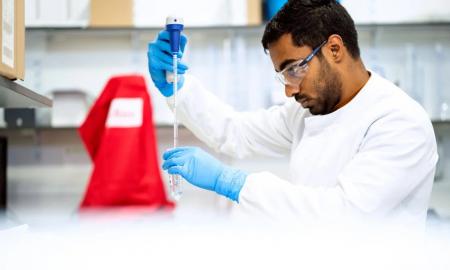There are many reasons a person may consider undergoing plastic surgery. Sometimes there are health benefits to be gleaned from plastic surgery, this can be a mighty motivator. Other times a patient may feel that their quality of life will improve after plastic surgery. No matter what the reasoning behind the decision is, there is one thing that does not change; the fact that is is still surgery are there are risks involved. Because of this, there are certain things that plastic surgery patients should and should not do before and after surgery. Here you will find a basic, comprehensive list of things you should do before undergoing plastic surgery as well as things you should not do. You will also find information about what should and should be done after having plastic surgery.
Before:
- The first thing you should do before heading into any procedure is to educate yourself on how the procedure works, what to expect, recovery expectations, and risks involved. The more you understand, the less fear there will be, the less fear you have, the better for your overall health during and after the procedure.
- The next important aspect of preparation is to set realistic expectations. While plastic surgery does have the ability to change things about the human body and correct perceived imperfections, it is not a "cure all". It is important to understand this before you undergo plastic surgery so that your expectations are on a realistic level.
- Take a good look at yourself before undergoing surgery. This is important for several reasons. This first is is that it will give you an opportunity to be one hundred percent certain that surgery is what you want. The second reason is a bit more complicated. For this, you will need to look beyond the area you are having surgery on. You need to take a long hard look at all of the surrounding areas to ensure that you will know exactly what is and is not there. The reason for this is to ensure you exactly what the surgery changes and what it does not.
- One of the biggest changes you should make before undergoing plastic surgery is to avoid all alcohol, cigarettes, and blood thinners for two to three weeks before surgery. This is very important because these substances can and will interfere with a great many aspects of the surgery, potentially causing many problems. It is also quite likely that your surgeon will postpone your surgery if you have used any of these substances prior to your appointment. Also, keep in mind that there is no way to hide the usage from your surgeon because you will undergo several blood tests in preparation for surgery which will show if any of these things are in your system. Anyone of these substances are quite dangerous to have in your system during surgery.
- If you are having plastic surgery to help with a weight problem, be sure that the weight loss comes before surgery. Drastically changing weight is not good for a post-surgery body, if your goal is to lose a certain amount of weight, the biggest part of this needs to come before heading into surgery.
After:
- Just as you should not consume alcohol, smoke cigarettes, or take blood thinners for at least two weeks before surgery, you should not use any of these substances for two to three weeks after surgery. This is vital to remember because it could cause serious health problems. Your surgeon will discuss all of this with you beforehand, but it is never a bad idea to be reminded.
- Many people want to look in a magnifying mirror multiple times per day looking for the smallest changes after surgery, resist this urge. It is not good for your mental health nor your surgery site to do this. Results take time, you are not going to change anything by looking in the mirror over and over again. Plus, there is always the possibility that you may cause infection in the site from uncovering it so often.
- Remember that nothing in life is instantaneous and plastic surgery is no different. Complete results can take anywhere from six months to a whole year, don't be discouraged if things aren't perfect after a few days. Healing is a process, it cannot go any faster or slower than it intends to. Do not over exert yourself too soon after surgery, even if you are feeling better.
- This tip is also very important, plan to take plenty of time off after surgery. No matter what area of the body you are being operated on, it will take time to heal and to get a place of being able to remove bandages and coverings. Many people are under the false belief that you can have surgery on a Monday and be completely back to normal by Tuesday, this is not the case. Allow at least a week or two to recuperate. Also, if the surgery is on the face, bandages will not be removed for around two weeks, be sure to take this into consideration.
- Another important aspect of surgery preparation is to find a close friend or family member to take care of you for the first twenty-four hours after surgery. You will also need someone to drive you at least some appointments afterward because of the pain medication.
This has been a list of basic tips to help you prepare for and recover from plastic surgery. Every case and every person is different, but these basic things apply to every case. Here is one final tip to consider. Make sure that you choose your surgeon very carefully. Check into board certifications, state certifications, and past patients. It is vital that you be completely comfortable with your surgeon to ensure optimal results. Many people make the mistake of making price their main consideration, but this is often a mistake. In the world of plastic surgery, cheaper, does not equate to better. There is usually a reason why a doctor can offer rates that undercut everyone else and it is generally a bad reason. Look into everything before making your final decision. For anyone looking for a plastic surgeon, consider Walnut Creek Plastic Surgery.






